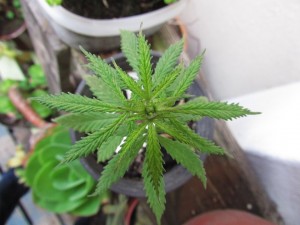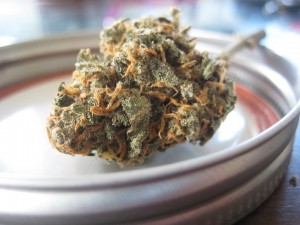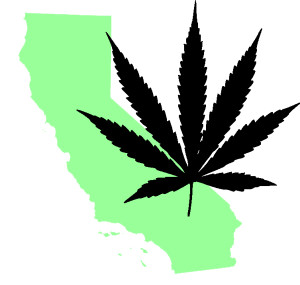 In California, the year kicked off with long queues of eager customers waiting in the dark; outside medical cannabis dispensaries for their “budtenders” to open doors and allow them to start shopping when the clock ticks midnight.
In California, the year kicked off with long queues of eager customers waiting in the dark; outside medical cannabis dispensaries for their “budtenders” to open doors and allow them to start shopping when the clock ticks midnight.
And this year, the effect has gone far beyond the marijuana cash register. We have all come across the ads or heard the rumor— even minors have, yet the drug remains illegal for under 21s.
“As you leave SFO [San Francisco] airport, you see prominent billboards for Eaze [a surfacing weed delivery service] with the message ‘Marijuana is here,’” says Danielle Ramo, an Adolescent Drug Use psychologist from the University of California-San Francisco. “Did parents expect to see so many images of weed all over?”
With the surfacing of legal recreational cannabis imminent in more American states, drug prevention education has evolved significantly with most schools dropping the archaic “Just Say No” slogan for an approach that may be more effective for a Marijuana POB era where weed is readily accessible. This new strategy emphasizes decision-making and critical thinking rather than insisting on abstinence.
One tactic they are adopting is the Being Adept curriculum. It is a proof-based course that has been in use by over 20 schools in San Francisco. This method along with other new-era drug education skills is based on decades of painstaking effectiveness research and current teaching practices.
The egg in a frying pan advert accompanied with the words “This is your brain on drugs,“ is no longer useful in drug education campaigns.
According to Ramo, “These are scare tactics are no longer effective. Today, school-based prevention is taking a very different mindset.”
In other words, more focus is now on facts, and not fear. What’s more, educators have realized that the conspicuously simplistic slogans like “Just say no” are no longer efficient. It is no wonder teachers are now urging students to check up data, contemplate on motives, talk about risks and think about on their goals and values.
The bottom line
Teachers are now expected to give engaging illustrations of the perceived dangerous effects of the drugs on the body while encouraging participation and allowing facts to unfold to the students. This means you are not merely going to tell the adolescent that his or her brain will resemble a frying egg when on drugs but you will give a demonstration of what takes place in the brain when someone is on drugs.


 Seems like only non-smokers and those who don’t mingle with cannabis users were shocked by this new Quinnipiac University national poll on marijuana legalization. If you didn’t see cannabis acceptance hit such a high so soon, then you have a lot to catch up with on the marijuana industry. To refresh your memory, California legalized recreational cannabis on the first day of this year, proof that the pursuit for decriminalization has been secretly on fire. Plus, more and more states want the drug legalized.
Seems like only non-smokers and those who don’t mingle with cannabis users were shocked by this new Quinnipiac University national poll on marijuana legalization. If you didn’t see cannabis acceptance hit such a high so soon, then you have a lot to catch up with on the marijuana industry. To refresh your memory, California legalized recreational cannabis on the first day of this year, proof that the pursuit for decriminalization has been secretly on fire. Plus, more and more states want the drug legalized.
 The legal marijuana industry won’t be slowing down any time soon. Recent research released in a report by cannabis research firm ArcView revealed just how fast the industry is growing. Through their partnership with BDS Analystics, ArcView discovered that North American legal weed sales grew by 33 percent in 2017 to $9.7 billion. The prediction is that they will continue to climb by an average of 28% annually through 2021. If this forecast turns out to be true, that would mean about $24.5 billion in annual legal pot sales by 2021.
The legal marijuana industry won’t be slowing down any time soon. Recent research released in a report by cannabis research firm ArcView revealed just how fast the industry is growing. Through their partnership with BDS Analystics, ArcView discovered that North American legal weed sales grew by 33 percent in 2017 to $9.7 billion. The prediction is that they will continue to climb by an average of 28% annually through 2021. If this forecast turns out to be true, that would mean about $24.5 billion in annual legal pot sales by 2021. The beginning of March, close to 150 people squeezed into a meeting room at the Statehouse in Trenton. The state of New Jersey then officially opened the conversation on marijuana legalization. The feelings on the topic were very divided. More than a dozen advocates and lobbyists spoke in favor of legal marijuana, while many others shared their reasons why recreational cannabis should not be allowed in New Jersey. As the meeting went on, six common themes emerged:
The beginning of March, close to 150 people squeezed into a meeting room at the Statehouse in Trenton. The state of New Jersey then officially opened the conversation on marijuana legalization. The feelings on the topic were very divided. More than a dozen advocates and lobbyists spoke in favor of legal marijuana, while many others shared their reasons why recreational cannabis should not be allowed in New Jersey. As the meeting went on, six common themes emerged: California has successfully circumvented federal law and created a state-held bank with the purpose of serving the marijuana industry. While many are excited that these plans have moved from words to actions, others are questioning how viable it is. This has led state Treasurer John Chiang and state Attorney General Xavier Becerra to launch a new feasibility study. Chiang’s department will be focusing on the financial and operational issues, while Becerra is examining the legal.
California has successfully circumvented federal law and created a state-held bank with the purpose of serving the marijuana industry. While many are excited that these plans have moved from words to actions, others are questioning how viable it is. This has led state Treasurer John Chiang and state Attorney General Xavier Becerra to launch a new feasibility study. Chiang’s department will be focusing on the financial and operational issues, while Becerra is examining the legal. Industry experts recently shared that California will become the largest recreational cannabis market in the world and the largest creator of jobs for marijuana. Not only is California going to be the largest market, but it is also the ideal location for growers, processors and sellers. For those looking for work in this booming market, growers, processors and sellers are not the only businesses that will be hiring; adjacent services (legal advice, marketing, security, etc.) will be seeking additional staff as well.
Industry experts recently shared that California will become the largest recreational cannabis market in the world and the largest creator of jobs for marijuana. Not only is California going to be the largest market, but it is also the ideal location for growers, processors and sellers. For those looking for work in this booming market, growers, processors and sellers are not the only businesses that will be hiring; adjacent services (legal advice, marketing, security, etc.) will be seeking additional staff as well. A big, long-awaited moment for the state of Pennsylvania, dispensaries made their first legal medical marijuana sales in the beginning weeks of February. The first dispensary to open was in Butler on Feb. 15th. Although medical marijuana was legalized in Pennsylvania two years ago, Pennsylvanians are just now able to walk into a dispensary and make a purchase.
A big, long-awaited moment for the state of Pennsylvania, dispensaries made their first legal medical marijuana sales in the beginning weeks of February. The first dispensary to open was in Butler on Feb. 15th. Although medical marijuana was legalized in Pennsylvania two years ago, Pennsylvanians are just now able to walk into a dispensary and make a purchase. California constituents unanimously voted in favor of the Adult Use of Marijuana Act (AUMA), famous as Proposition 64 eventually becoming the 5th state to decriminalize recreational pot after Colorado, Washington DC, Oregon and Alaska. It also shouldn’t be forgotten that California was the first state to legalize medicinal cannabis and currently, (and it has been so from January 1, 2018), you can freely smoke your pot in marijuana as long as your use your weed within the law.
California constituents unanimously voted in favor of the Adult Use of Marijuana Act (AUMA), famous as Proposition 64 eventually becoming the 5th state to decriminalize recreational pot after Colorado, Washington DC, Oregon and Alaska. It also shouldn’t be forgotten that California was the first state to legalize medicinal cannabis and currently, (and it has been so from January 1, 2018), you can freely smoke your pot in marijuana as long as your use your weed within the law. Marijuana decriminalization is now one of the hottest topics in California and the whole of U.S. On Jan. 1, California celebrated the legalization of weed for all over 21s and joined Colorado in the list of ‘high states.’
Marijuana decriminalization is now one of the hottest topics in California and the whole of U.S. On Jan. 1, California celebrated the legalization of weed for all over 21s and joined Colorado in the list of ‘high states.’